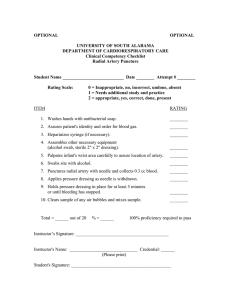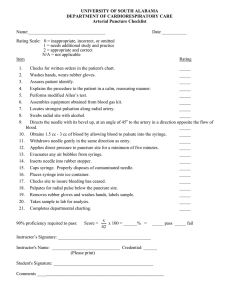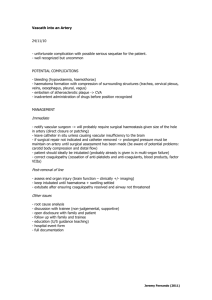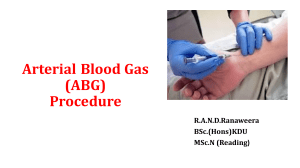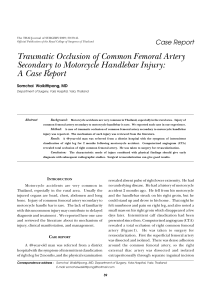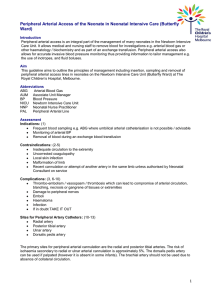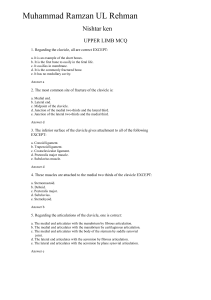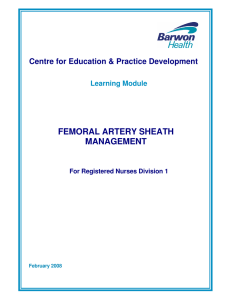Arterial Blood Gas Sampling
advertisement
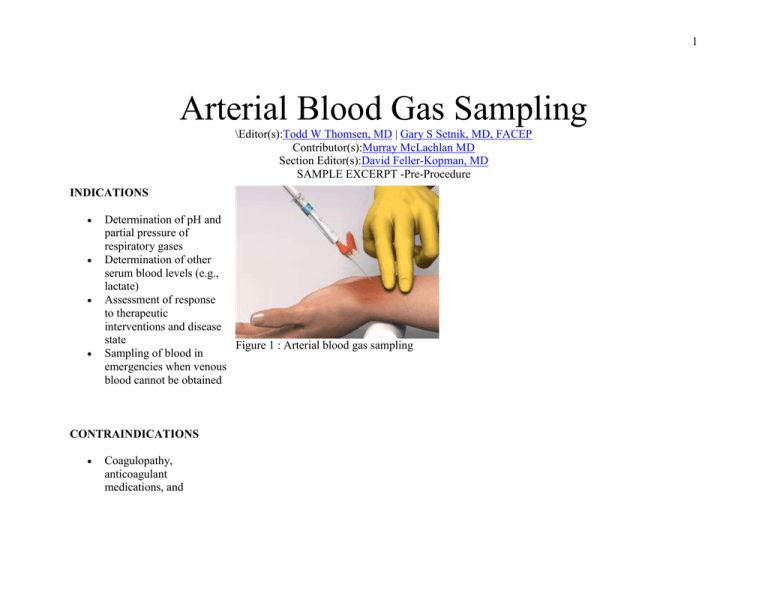
1 Arterial Blood Gas Sampling \Editor(s):Todd W Thomsen, MD | Gary S Setnik, MD, FACEP Contributor(s):Murray McLachlan MD Section Editor(s):David Feller-Kopman, MD SAMPLE EXCERPT -Pre-Procedure INDICATIONS Determination of pH and partial pressure of respiratory gases Determination of other serum blood levels (e.g., lactate) Assessment of response to therapeutic interventions and disease state Figure 1 : Arterial blood gas sampling Sampling of blood in emergencies when venous blood cannot be obtained CONTRAINDICATIONS Coagulopathy, anticoagulant medications, and 2 thrombolysis Abnormalities of the overlying skin Prior vascular surgery at or proximal to the entry site Inadequate local circulation EQUIPMENT Gloves and antiseptic **UNIVERSAL PRECAUTIONS** **STERILE TECHNIQUE** Syringe, 25- to 27-gauge needle and 1% lidocaine without epinephrine for anesthetic (optional) See Local Anesthesia for further details. Syringe for aspiration (heparinized). Prepackaged ABG kits are available, or a standard syringe may be prepared with heparin. 3 1.5-inch 22- to 23-gauge needle and syringe cap Specimen bag and ice Bandage ANATOMY Radial artery o The radial artery is the preferred Figure 3 : Equipment site for arterial puncture. o Collateral circulation is from the palmar branches of the ulnar artery. The artery is medial and proximal to the radial styloid on the volar side of the wrist. Brachial artery o The brachial artery may be chosen if the radial arteries are not accessible. 4 The brachial artery lies deep in the antecubital fossa and may be difficult to enter. It is medial in the antecubital fossa, lateral to the medial epicondyle, and medial to the biceps brachii tendon. Femoral artery o The femoral artery is the least desirable site. o It is located midway between the symphysis pubis and anterior superior iliac spine, coursing under the inguinal ligament, lateral to the femoral vein, and medial to the femoral nerve. 5 6 Post-Procedure CARE Immediately apply direct pressure to the puncture site, for up to 10-15 minutes for patients taking anticoagulant medications or who have coagulopathy. Check site frequently and instruct the patient to not disturb the site and to Figure 15 : Apply pressure for 5 minutes report any abnormalities immediately. Analyze results. COMPLICATIONS Hematoma formation with possible transfusion, infection, and compression neuropathy Distal ischemia Pseudoaneurysm and arteriovenous fistula formation Localized trauma 7 Infection (soft-tissue and bone)
